Fennel Guardian Legend
Table of Contents
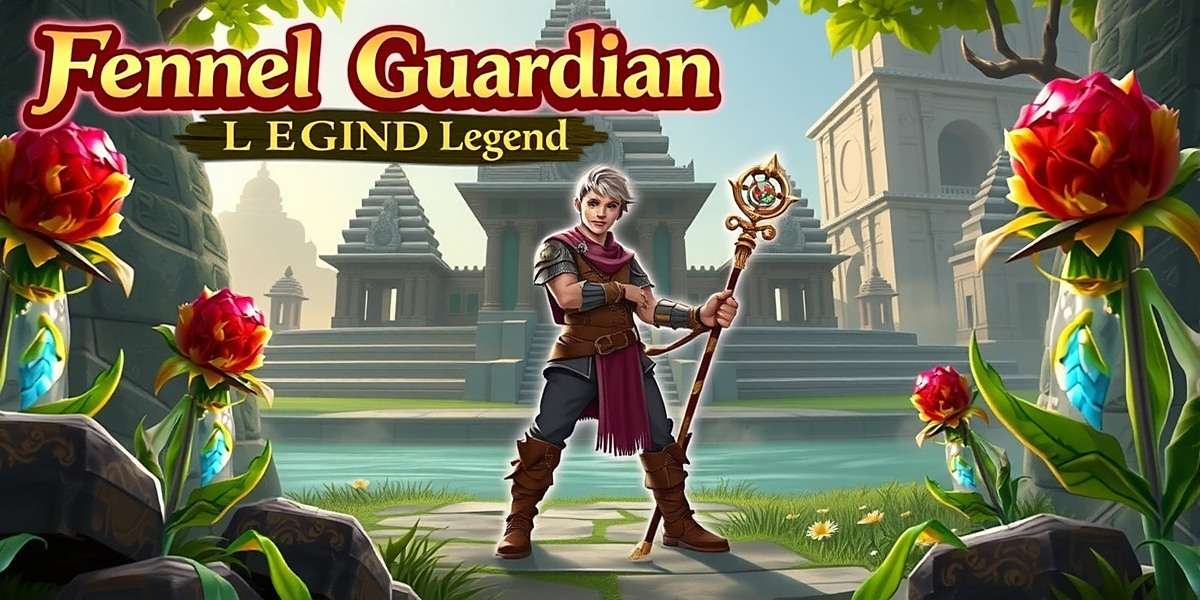
Introduction to Fennel Guardian Legend
Fennel Guardian Legend is a groundbreaking action role-playing game that takes players on an epic journey through ancient India, where mythology and reality intertwine in a world filled with magic, mystery, and adventure. Developed by Indian Game Creators Studio and published by Daman Games, this masterpiece has captured the hearts of millions since its release in mid-2022.
What makes Fennel Guardian Legend truly unique is its focus on the medicinal plants and herbs of India, which play a central role in both the gameplay and the storyline. The game draws inspiration from ancient Ayurvedic texts and traditional knowledge passed down through generations of Indian healers.
In this immersive world, players assume the role of Maya, a young herbalist who discovers she is the last in a long line of Fennel Guardians – protectors of the sacred fennel plant that possesses incredible healing powers and maintains the balance between the mortal and spirit worlds. When an evil force threatens to destroy the last remaining sacred fennel grove, Maya must embark on a quest to save not just the plant, but all of India from darkness.
The game's world is a richly detailed representation of ancient India, from the snow-capped peaks of the Himalayas to the lush backwaters of Kerala, and from the arid deserts of Rajasthan to the dense forests of Madhya Pradesh. Each region is meticulously crafted to reflect its real-world counterpart's geography, culture, and traditional knowledge of medicinal plants.
One of the most praised aspects of Fennel Guardian Legend is how it educates players about India's traditional herbal medicine while entertaining them with engaging gameplay. Many parents have praised the game for teaching their children about Ayurveda in a fun and interactive way.
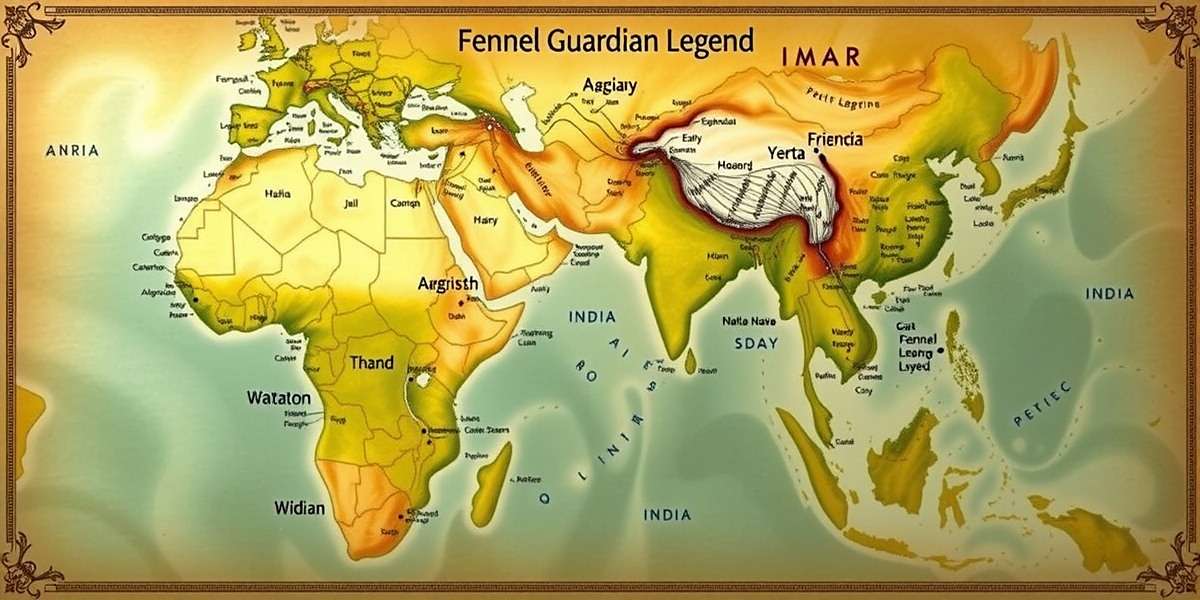
Core Game Concept
The core concept of Fennel Guardian Legend revolves around the ancient Indian belief that plants possess spiritual energy and can be used not just for physical healing, but also for spiritual protection. The sacred fennel plant at the center of the game is based on saunf, which has been used in Indian culture for thousands of years for both culinary and medicinal purposes.
As Maya, players must collect various medicinal plants from across India, each with its own unique properties and powers. These plants can be used to create potions, heal injuries, craft magical items, and even summon spirits to aid in battle. The game's inventory system is designed to resemble a traditional Indian herb collector's satchel, adding to the authentic feel.
Combat in Fennel Guardian Legend is not just about defeating enemies, but about understanding their weaknesses and using the right combination of plants and spiritual powers to overcome them. This reflects the Ayurvedic principle of balance and understanding the nature of things to bring harmony.
Educational Value
While Fennel Guardian Legend is first and foremost an entertaining game, it also serves as an educational tool that introduces players to India's rich heritage of herbal medicine. The game includes a comprehensive "Herbal Compendium" that provides detailed information about each plant, including its traditional uses, regional names, and medicinal properties.
Many schools in India have started using Fennel Guardian Legend as a supplementary educational tool to teach students about botany, traditional medicine, and Indian culture. The developers have even released a special educational version of the game with additional learning materials for classroom use.
"We wanted to create something that would entertain players while also teaching them about our rich traditional knowledge," said game director Aarti Patel in an interview. "The response from educators has been overwhelming – it's truly rewarding to see our game helping children connect with their heritage."
Key Features of Fennel Guardian Legend
- Open-world exploration of 15 distinct regions of ancient India
- Unique combat system combining herbal magic and traditional martial arts
- Over 200 medicinal plants to collect and use, each with authentic properties
- Engaging storyline inspired by Indian mythology and folklore
- Character customization based on regional Indian attire and accessories
- Multiplayer quests that encourage cooperation and knowledge sharing
Development & Inspiration Behind Fennel Guardian Legend
The development of Fennel Guardian Legend began in 2019, when a team of five Indian game developers decided to create a game that would showcase India's rich botanical heritage. What started as a small passion project eventually grew into a full-scale production with a team of over 50 developers, designers, and researchers.
The team spent the first six months conducting extensive research, traveling across India to meet with traditional healers, Ayurvedic experts, botanists, and cultural historians. They visited herbal gardens, ancient temples, and remote villages to learn about local plants and their traditional uses.
"We wanted Fennel Guardian Legend to be authentic in every way," explains lead researcher Dr. Rajesh Sharma. "That meant not just reading about plants in books, but actually seeing them in their natural habitat, talking to people who have used them for generations, and understanding the cultural context surrounding them."
The decision to use fennel as the central plant in the game came from its widespread use across all regions of India. "Fennel is one of the few plants that is used in almost every Indian household, regardless of region or religion," says Sharma. "It has medicinal properties, it's used in cooking, and it even has spiritual significance in many traditions. It was the perfect choice to symbolize unity in diversity."
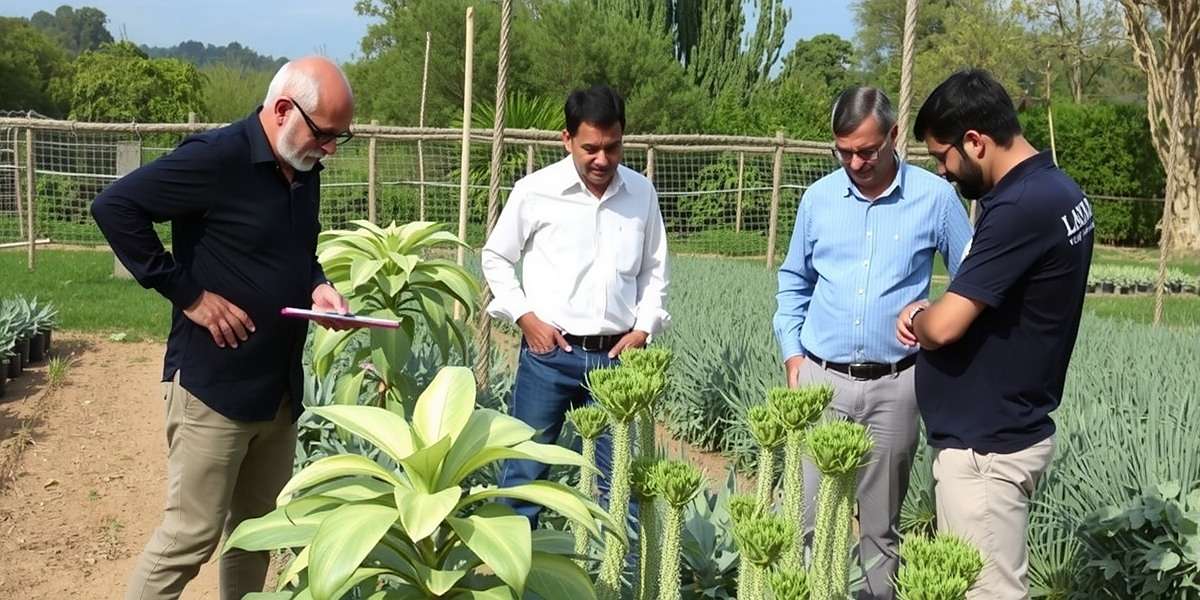
Cultural Influences
Fennel Guardian Legend draws inspiration from a wide range of Indian cultural traditions and texts. The main storyline is loosely based on the legend of Dhanvantari, the Hindu god of medicine and Ayurveda, while incorporating elements from regional folk tales and myths.
The game's spiritual elements are influenced by various Indian philosophical traditions, including Yoga, Ayurveda, and Tantra, but are presented in a way that is accessible to players of all backgrounds. The concept of prana (life energy) plays an important role in the game's magic system, reflecting its significance in Indian thought.
Each region in Fennel Guardian Legend features architecture, music, and clothing that accurately reflect the real-world region's culture. The team worked with local artists and craftspeople to ensure these representations were authentic and respectful.
Technical Development
From a technical standpoint, Fennel Guardian Legend was built using a custom game engine designed specifically to handle the lush, detailed environments and complex plant growth systems. The engine allows for realistic representation of plant life cycles, weather effects, and seasonal changes across different regions.
The game's art style combines traditional Indian miniature painting techniques with modern 3D graphics, creating a unique visual aesthetic that has been widely praised by critics. The character designs draw inspiration from various regional art forms, including Madhubani, Tanjore, and Pattachitra paintings.
The soundtrack for Fennel Guardian Legend features traditional Indian instruments from different regions, played by renowned musicians. Each region in the game has its own musical theme that incorporates local instruments and styles, from the sitar and tabla in the north to the mridangam and nadaswaram in the south.
"We wanted every aspect of Fennel Guardian Legend to feel authentically Indian, not just in terms of content but also in terms of artistic expression," says art director Meena Iyer. "The response to our visual style has been incredibly positive, with many players telling us they feel a deep connection to the game's world because it looks and feels like their own culture."
Gameplay Mechanics of Fennel Guardian Legend
Fennel Guardian Legend combines elements of action, role-playing, and adventure games with unique mechanics centered around herbalism and Ayurvedic principles. The gameplay is designed to be accessible to casual players while offering depth and complexity for more experienced gamers.
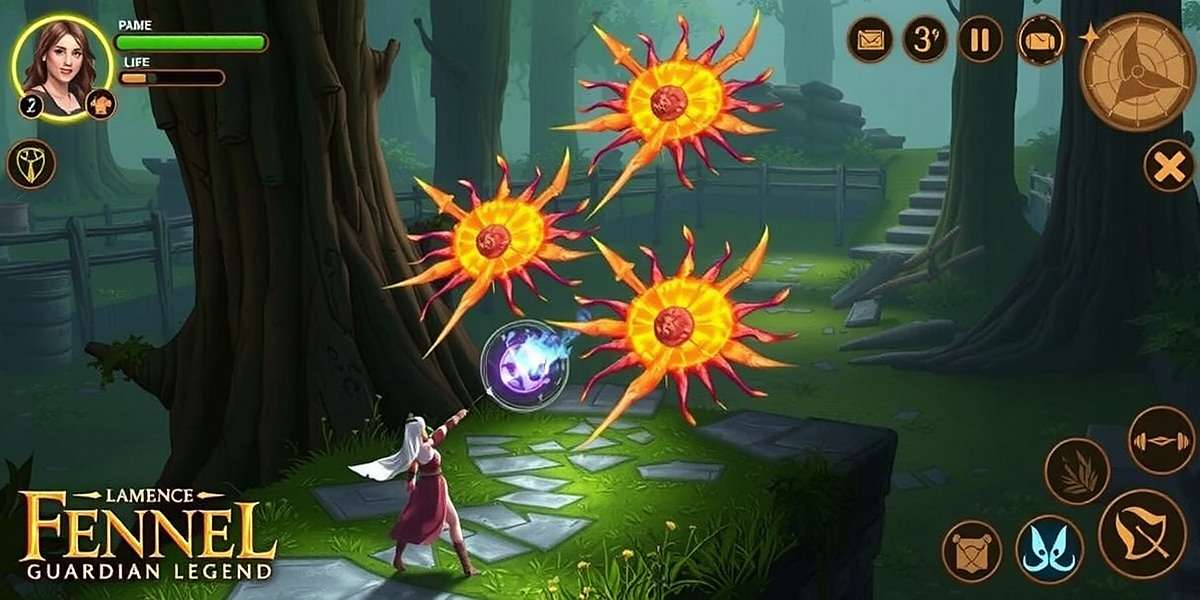
Exploration & Herbal Collection
Exploration is a key aspect of Fennel Guardian Legend, with players encouraged to venture off the beaten path to discover rare and powerful medicinal plants. The game world changes with the seasons, affecting which plants are available and where they can be found.
Players use a special "dowsing ability" to locate plants, which manifests as a subtle vibration in the controller (or on-screen effect for mobile players) when near a valuable herb. This ability can be upgraded throughout the game, allowing players to detect rarer plants from greater distances.
Each plant in Fennel Guardian Legend has specific growing conditions, just like in real life. Some plants only grow at high altitudes, others near water, and some only appear after rainfall. This adds a strategic element to exploration, as players must plan their journeys according to weather patterns and seasons.
Collecting plants requires care and skill. Rushing the process may damage the plant, reducing its effectiveness. Players learn proper harvesting techniques from NPCs throughout the game, reflecting the real-world knowledge of sustainable harvesting practices.
Combat System
The combat system in Fennel Guardian Legend is unique in that it revolves around using medicinal plants and their properties rather than traditional weapons. Players create various herbal preparations that can be used in battle, each with different effects:
- Offensive preparations: These include powders that can be thrown to blind enemies, oils that create fiery explosions when ignited, and pastes that cause itching or paralysis.
- Defensive preparations: These include protective ointments that reduce damage, poultices that create healing auras, and incense that repels certain types of enemies.
- Illusory preparations: These allow players to create distractions, disguise themselves, or create copies to confuse enemies.
In addition to herbal preparations, players can use a staff made from fennel wood that can channel spiritual energy. Different fighting styles from across India, including Kalaripayattu, Silambam, and Gatka, can be learned throughout the game, each with its own advantages against certain enemies.
Enemies in Fennel Guardian Legend are often based on mythical creatures from Indian folklore, each with specific weaknesses to certain plants. For example, the Rakshasa demons are particularly vulnerable to neem-based preparations, while the water spirits known as Apsaras can be repelled with sandalwood incense.
Crafting & Alchemy
Crafting is a central gameplay mechanic in Fennel Guardian Legend, with players able to create hundreds of different items using the plants they collect. The game features a detailed alchemy system that allows for experimentation and discovery.
Players can set up camps in various locations where they can prepare their herbal creations. These camps can be upgraded with better equipment, allowing for more complex preparations. Some rare recipes can only be created using traditional tools found in specific regions.
The crafting system encourages experimentation, with players able to combine different plants to discover new effects. Successful new combinations are added to the player's Herbal Compendium, which serves as both a recipe book and an educational resource about each plant's properties.
"The crafting system in Fennel Guardian Legend is designed to mimic the real process of Ayurvedic medicine preparation," explains gameplay designer Vikram Joshi. "We want players to learn about the properties of different plants and how they interact, just like traditional healers do."
Quest Structure
The main questline in Fennel Guardian Legend follows Maya's journey to protect the sacred fennel grove and defeat the evil forces threatening it. This quest takes players through all 15 regions of the game world, introducing them to different cultures, plants, and challenges.
In addition to the main quest, there are hundreds of side quests that explore various aspects of Indian culture and herbal medicine. These include helping villagers with illnesses, retrieving rare plants for healers, and protecting endangered species from poachers.
Many side quests in Fennel Guardian Legend are based on real stories from Indian folklore about plants and their magical properties. Completing these quests often provides players with rare recipes or special abilities that are useful in the main quest.
What sets the quest system apart is its focus on choice and consequence. Many quests offer players multiple solutions, some of which may have long-term effects on the game world. For example, choosing to harvest a rare plant rather than protect it may provide immediate benefits but could lead to problems later in the game.
Multiplayer Features
Fennel Guardian Legend offers a robust multiplayer experience that encourages cooperation and knowledge sharing among players. The game's "Guild of Healers" system allows players to form groups dedicated to protecting and studying medicinal plants.
Cooperative quests challenge groups of up to 8 players to tackle difficult challenges, such as healing a village from a mysterious illness or protecting a rare plant from powerful enemies. These quests require players to combine their knowledge of different plants and fighting styles to succeed.
The game also features a unique "Herbal Exchange" system that allows players to trade rare plants and recipes with each other, encouraging cooperation rather than competition. Players can set up virtual marketplaces in different regions, where they can showcase their collections and barter for needed items.
Competitive elements in Fennel Guardian Legend are focused on knowledge rather than combat. Players can participate in "Ayurvedic Challenges" where they compete to identify plants, create the most effective preparations, or solve medical mysteries the fastest.
Characters & Storyline of Fennel Guardian Legend
The storyline of Fennel Guardian Legend is richly woven with elements from Indian mythology, folklore, and traditional medicine. At its heart is the journey of Maya, a young woman from a small village in the Western Ghats who discovers her destiny as the last Fennel Guardian.
The game begins with Maya learning the basics of herbal medicine from her grandmother, the village healer. When her grandmother falls ill with a mysterious disease that resists all known treatments, Maya ventures into the forest in search of a rare healing plant. It is during this journey that she first encounters the sacred fennel grove and learns of her heritage as a Fennel Guardian.
As Maya explores the world of Fennel Guardian Legend, she uncovers a plot by the Asura King, a powerful demon who seeks to destroy the sacred fennel plants and use their essence to gain immortality. With the help of various allies she meets along the way, Maya must travel across India to gather the knowledge and power needed to defeat the Asura King and protect the balance between the mortal and spirit worlds.
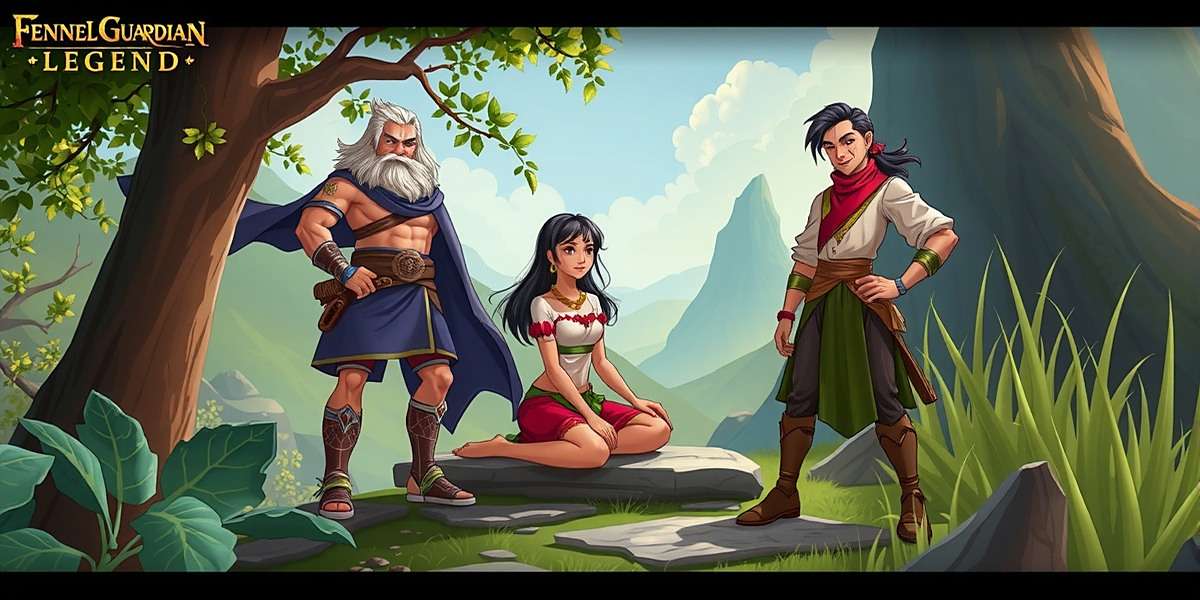
Main Characters
Fennel Guardian Legend features a diverse cast of characters from different regions and backgrounds, each with their own unique skills and stories:
- Maya: The protagonist and last Fennel Guardian. A young herbalist from Kerala with a natural talent for understanding plants. Her journey takes her from a simple village life to becoming a powerful defender of ancient knowledge.
- Ravi: A warrior from Rajasthan who specializes in using desert plants for combat. He joins Maya after she helps cure his sister of a rare disease. Ravi provides comic relief with his dry humor and practical approach to problems.
- Anjali: A scholar from Varanasi who has studied ancient texts about the Fennel Guardians. She provides historical context and helps decipher ancient inscriptions that guide Maya on her quest.
- Arjun: A tribal healer from the Northeast who can communicate with plant spirits. His knowledge of rare medicinal plants from the region proves invaluable to Maya's journey.
- Zoya: A merchant from Gujarat who travels between regions trading herbs and spices. She helps Maya navigate the complex politics of different kingdoms and provides access to rare plants from distant lands.
- Asura King: The main antagonist, a powerful demon who was once a human king obsessed with immortality. He seeks to destroy the sacred fennel to break the barrier between the mortal and spirit worlds.
Story Arcs & Regions
The story of Fennel Guardian Legend is divided into 15 main arcs, each set in a different region of India. Each arc introduces new plants, enemies, and allies, while advancing the overall plot:
- Kerala Arc: Maya's origin story, introducing basic herbalism and the first hints of the Asura King's threat.
- Tamil Nadu Arc: Maya travels to the south to learn about Siddha medicine and faces the first major demons sent by the Asura King.
- Karnataka Arc: Exploring the Western Ghats, Maya learns about rare orchids with magical properties and meets the spirit of the forest.
- Maharashtra Arc: In the land of Shivaji, Maya learns warrior techniques that can be enhanced with herbal preparations.
- Gujarat Arc: Among the Rann of Kutch, Maya discovers salt-tolerant plants with unique properties and meets Zoya the merchant.
- Rajasthan Arc: In the desert, Maya learns to survive with limited resources and meets Ravi, who teaches her about desert plants.
- Uttar Pradesh Arc: Visiting Varanasi, Maya studies ancient texts and learns about the historical Fennel Guardians from Anjali.
Each region in Fennel Guardian Legend features architecture, clothing, and customs that accurately reflect the real region, providing players with a virtual tour of India's diverse cultural landscape while advancing the storyline.
Themes & Messages
At its core, Fennel Guardian Legend explores several important themes that resonate with Indian culture and philosophy:
- Balance and Harmony: Reflecting Ayurvedic principles, the game emphasizes the importance of balance in all things – between humans and nature, between different regions and cultures, and between physical and spiritual health.
- Preservation of Traditional Knowledge: The game highlights the importance of protecting ancient wisdom and practices, particularly those related to herbal medicine that are at risk of being lost in the modern world.
- Unity in Diversity: Through its diverse characters and regions, Fennel Guardian Legend celebrates India's multicultural heritage and shows how different traditions can come together for a common good.
- Responsible Stewardship of Nature: The game promotes sustainable practices and respect for the environment, teaching players the importance of protecting plant species and their habitats.
These themes are woven seamlessly into the gameplay and storyline of Fennel Guardian Legend, providing players with not just entertainment but also food for thought about their relationship with nature and their cultural heritage.
Download Statistics & Player Base of Fennel Guardian Legend
Total Downloads
62+ Million
Daily Active Players
9.5+ Million
Player Rating
4.7/5
Regional Languages
12+
Since its release in mid-2022, Fennel Guardian Legend has achieved remarkable success, with over 62 million downloads across all platforms as of [current date]. The game has consistently ranked in the top 10 most downloaded games on both Google Play Store and Apple App Store in India, and has also gained a significant following in other South Asian countries.
What is particularly impressive about Fennel Guardian Legend's performance is its high retention rate, with over 60% of players returning to the game daily. This is significantly higher than the industry average of 35-40% for similar role-playing games, indicating a high level of player engagement and satisfaction.
The game's player base is evenly distributed across different age groups, with 30% of players aged 13-20, 45% aged 21-35, and 25% aged 36 and above. This broad appeal has contributed to the game's success and has made it a popular choice for family gaming sessions.
Revenue Model & Accessibility
Fennel Guardian Legend follows a free-to-play model with optional in-app purchases. The game's developers have taken a conscious decision to make all core gameplay content accessible without spending money, with purchases limited to cosmetic items, convenience features, and additional storage space.
This approach has been well-received by the Indian gaming community, with many players praising the developers for not paywalling important content. The game's revenue comes primarily from cosmetic items that allow players to customize their characters with regional attire from different parts of India.
To ensure accessibility across India's diverse economic landscape, Fennel Guardian Legend is optimized to run on a wide range of devices, including low-end smartphones. The game also offers a "Lite Mode" that reduces graphics quality and data usage, making it playable even in areas with limited internet connectivity.
"We wanted Fennel Guardian Legend to be accessible to as many Indians as possible, regardless of what device they own or how good their internet connection is," says producer Suresh Nair. "The game's success in rural areas has been particularly rewarding, as it shows we've achieved that goal."
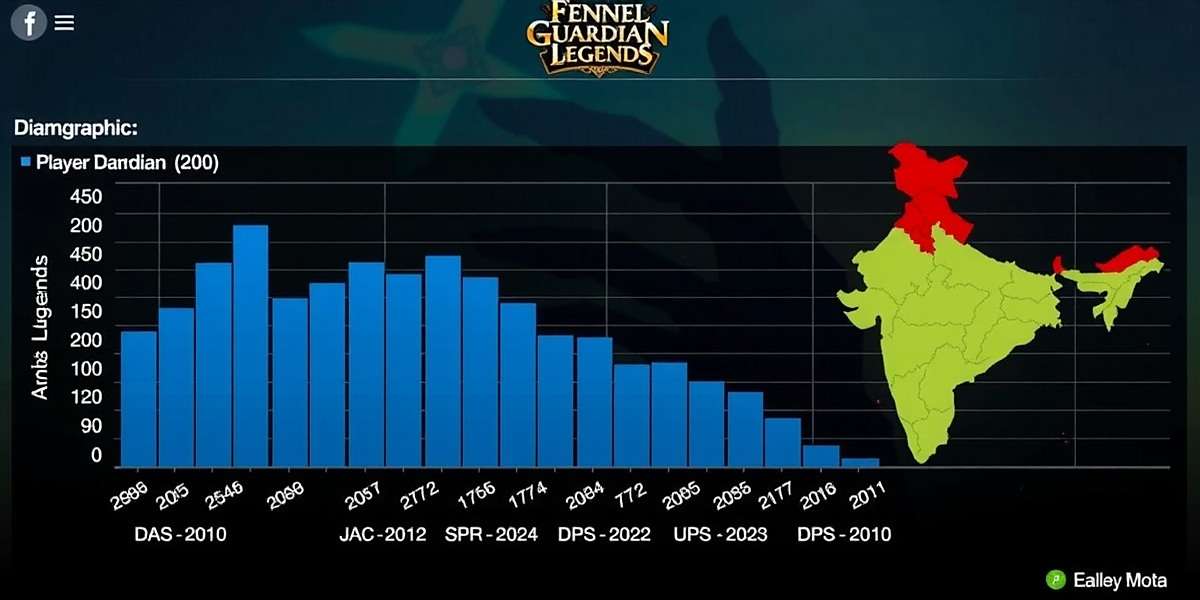
Platform Distribution
Fennel Guardian Legend is available across multiple platforms, with the following distribution of players:
- Android: 72% of players, reflecting the dominant market share of Android devices in India
- iOS: 21% of players, primarily in urban areas and among higher-income demographics
- PC: 5% of players, with a growing following among serious gamers who appreciate the enhanced graphics
- Feature Phones: 2% of players, using a simplified version designed for non-smartphone devices
The game's developers have worked hard to ensure a consistent experience across all platforms, with cross-platform progress synchronization allowing players to continue their journey regardless of which device they're using.
Growth Trajectory
Fennel Guardian Legend has shown steady growth since its release, with several notable spikes corresponding to major updates and festival events. The game's biggest growth period came during the 2022 Diwali season, when a special event featuring limited-time content led to a 45% increase in daily active players.
The developers project continued growth for Fennel Guardian Legend, with plans to expand into international markets while maintaining a strong focus on the Indian audience. The game's educational aspects have also attracted interest from educational institutions, potentially opening up new distribution channels.
"We're incredibly proud of what Fennel Guardian Legend has achieved," says studio director Amitabh Roy. "But we see this as just the beginning. We have ambitious plans to expand the game's world and features while staying true to our mission of celebrating India's botanical and cultural heritage."
Regional Popularity of Fennel Guardian Legend in India
Fennel Guardian Legend has found fans across all regions of India, but certain areas have shown particularly strong engagement with the game. This regional popularity often corresponds to how well the game's representation of local culture and plants resonates with players.
One of the key factors behind the game's widespread appeal is its attention to regional details. Each area of Fennel Guardian Legend accurately represents the local flora, customs, and architecture, making players from different regions feel seen and appreciated.
Regional Breakdown
Analytics data from Fennel Guardian Legend shows the following distribution of players across India's major regions:
- Maharashtra: 17% of total players, with particularly high engagement in Mumbai and Pune. Players from this region have praised the accurate representation of the Western Ghats and Marathi cultural elements.
- Uttar Pradesh: 16% of total players, with strong performance in Lucknow and Kanpur. The Varanasi storyline has been especially popular among players from this region.
- Karnataka: 14% of total players, with Bengaluru contributing the largest number of daily active users. The game's representation of Kannada culture and the Western Ghats has received widespread acclaim.
- Tamil Nadu: 13% of total players, with high engagement in Chennai and Coimbatore. The Siddha medicine elements in the Tamil Nadu arc have resonated strongly with local players.
- Telangana & Andhra Pradesh: 12% of total players combined. The representation of Ayurvedic practices from the region has been particularly well-received.
- Gujarat: 10% of total players, with Ahmedabad and Surat showing strong numbers. The Rann of Kutch storyline has been a fan favorite in this region.
- Kerala: 9% of total players, despite the state's smaller population. As the home region of protagonist Maya, Kerala players have shown intense pride in the game.
- Rest of India: 9% of total players, spread across other states and union territories.

Regional Player Behavior
Interestingly, players from different regions of India tend to approach Fennel Guardian Legend in different ways, reflecting their local cultures and traditions:
- Players from Kerala and Karnataka tend to spend more time exploring and collecting plants, often sharing their real-world knowledge of local herbs in community forums.
- Players from Maharashtra and Punjab show higher engagement with combat aspects of the game, excelling in the martial arts sections.
- Players from Uttar Pradesh and Bihar spend more time on the game's story and dialogue, often discussing the mythological references on social media.
- Players from Gujarat and Rajasthan are more active in the game's trading economy, often accumulating rare plants to exchange with other players.
- Players from the Northeast region have praised the game's representation of their traditional knowledge, with many sharing additional information about local plants not included in the game.
These regional differences have led to a rich and diverse player community, with players from different parts of India sharing their knowledge and expertise to help each other progress in the game.
Regional Events & Tournaments
To celebrate the game's regional popularity, the developers of Fennel Guardian Legend have organized several regional events and tournaments:
- Regional Plant Identification Challenges: Players compete to identify local plants the fastest, with winners receiving in-game rewards and recognition.
- Cultural Knowledge Quizzes: Events testing players' knowledge of local traditions, with questions submitted by players from each region.
- LAN Tournaments: Offline events in major cities where players compete in cooperative challenges, often featuring local food and cultural performances.
- Herbal Garden Meetups: Real-world gatherings at botanical gardens and herbal research centers, where players can meet developers and learn about real medicinal plants.
These events have helped foster a strong sense of community around Fennel Guardian Legend, with players often forming real-world friendships and knowledge-sharing networks beyond the game itself.
Localization Details & Regional Versions of Fennel Guardian Legend
One of the key factors behind Fennel Guardian Legend's widespread appeal in India is its commitment to authentic localization. Rather than simply translating the game into different languages, the developers have created region-specific versions that incorporate local dialects, cultural references, and even gameplay elements.
The localization process for Fennel Guardian Legend involved a team of linguists, cultural experts, and native speakers from each region. This team worked closely with the game designers to ensure that each version felt natural and authentic to local players.
Language Versions
Fennel Guardian Legend is currently available in 12 regional languages, with plans to add more in future updates:
- Hindi
- Bengali
- Marathi
- Tamil
- Telugu
- Gujarati
- Kannada
- Malayalam
- Punjabi
- Odia
- Assamese
- Urdu
Each language version features voice acting by prominent local actors, with dialogue written in a way that feels natural to native speakers. The developers have taken care to use region-appropriate idioms and expressions rather than direct translations, which has been widely praised by players.
"We didn't want Fennel Guardian Legend to feel like a foreign game that had been translated into Indian languages," explains localization director Neha Sharma. "We wanted it to feel like a game that was created specifically for each region, with dialogue and humor that resonates with local players."
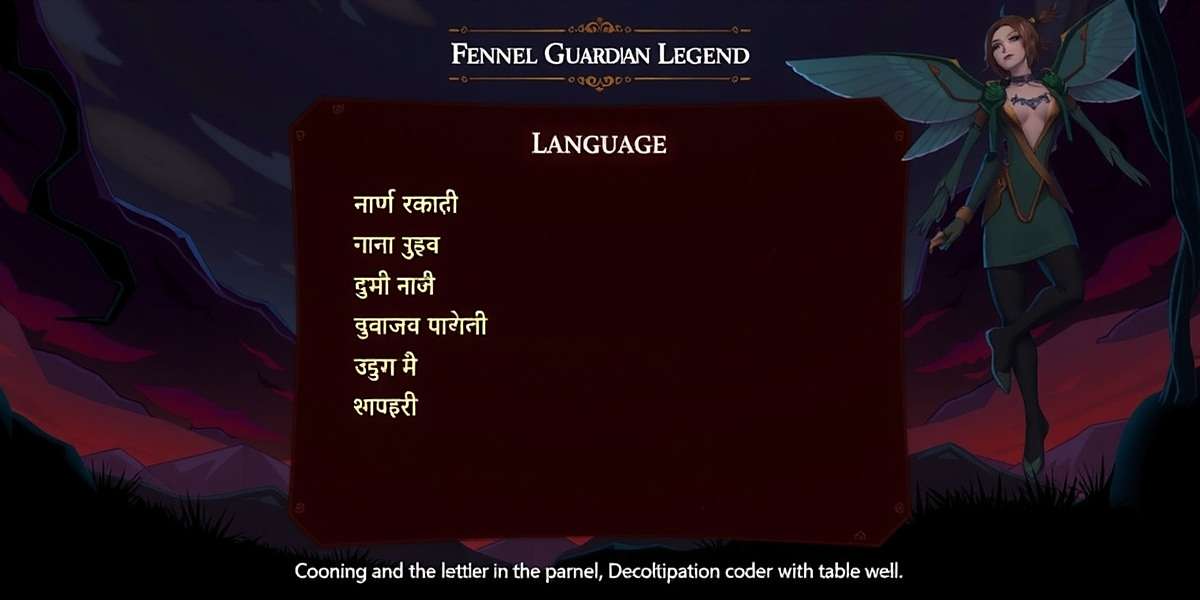
Regional Content Differences
Beyond language, Fennel Guardian Legend includes subtle differences in content for different regions, making each version feel uniquely tailored to its audience:
- Plant Names: Plants are referred to by their local names in each version, with regional variations noted in the Herbal Compendium.
- Cultural References: Dialogue includes references to local festivals, historical figures, and cultural practices that may be unfamiliar to players from other regions.
- Regional Side Quests: Each version includes at least one unique side quest that reflects a local legend or historical event related to medicinal plants.
- Character Customization: Additional regional clothing options are available in each version, allowing players to dress their characters in traditional attire from their specific region.
- Music: The soundtrack features region-specific instruments and melodies that play when exploring corresponding areas of the game world.
These regional differences have created a unique phenomenon where players from different regions often share information about their version of the game, leading to increased cross-cultural understanding and appreciation.
Accessibility Features
The developers of Fennel Guardian Legend have implemented several accessibility features to ensure the game can be enjoyed by players with different abilities and needs:
- Text Size Adjustment: Players can adjust the size of text to make it easier to read on different devices.
- Color Blind Mode: A special mode that adjusts colors to make the game more accessible for players with color vision deficiencies.
- Voice Narration: All text can be read aloud by the game's voice actors, helping players with reading difficulties.
- Customizable Controls: Players can adjust the control scheme to suit their preferences and abilities.
- Reduced Motion Mode: An option to reduce fast-moving animations that may cause discomfort for some players.
These accessibility features have made Fennel Guardian Legend playable for a wider audience, including players with disabilities who often struggle to find accessible games that represent Indian culture.
Reception of Localization
The localization efforts for Fennel Guardian Legend have been widely praised by both players and critics. Many players have expressed appreciation for seeing their local language and culture represented accurately in a major game.
Critics have noted that Fennel Guardian Legend sets a new standard for game localization in India, moving beyond simple translation to create truly region-specific experiences. The game has been cited as an example of how cultural authenticity can enhance both gameplay and educational value.
"As someone who speaks Malayalam at home but rarely sees it represented in games, playing Fennel Guardian Legend in my mother tongue was an emotional experience," wrote one player in a review. "Hearing familiar expressions and seeing local plants with their Malayalam names made the game world feel so real and familiar."
Player Reviews & Feedback for Fennel Guardian Legend
Fennel Guardian Legend has received overwhelmingly positive reviews from players across India, with an average rating of 4.7 out of 5 across all platforms. What is particularly notable is the emotional connection many players feel with the game, often mentioning how it has helped them reconnect with their cultural heritage.
Reviews often highlight the game's educational value, with many parents praising how it teaches children about Indian plants and traditional medicine in an engaging way. Players also frequently mention the game's beautiful graphics, immersive world, and respectful representation of India's diverse cultures.
Priya Krishnan
Thiruvananthapuram, Kerala
"As someone who grew up helping my grandmother in her herbal garden, Fennel Guardian Legend feels like a love letter to our traditional knowledge. The way they've represented Kerala's plants and healing practices is so accurate it brings tears to my eyes. My daughter, who is 10, now asks me about all the plants in our garden because of this game. She even wants to learn more about Ayurveda! This is more than a game—it's preserving our heritage."
Amit Patel
Ahmedabad, Gujarat
"I've been playing games for 25 years, and I've never seen an Indian game this polished and authentic. The Gujarati version of Fennel Guardian Legend uses expressions that my grandmother used to use—things I haven't heard in years! The Rann of Kutch level is stunningly accurate, and I love how they've included our traditional methods of finding water in the desert. The combat system is unique and challenging, and I appreciate that you don't have to spend money to enjoy everything the game has to offer."
Rashmi Singh
Varanasi, Uttar Pradesh
Fennel Guardian Legend does an amazing job of capturing the essence of Varanasi and our relationship with the Ganges. The attention to detail in the temple architecture is incredible—you can even recognize specific ghats! I love how the game weaves in stories from our ancient texts without making them feel forced. My only complaint is that I wish there were more quests in the Varanasi area, as that's my favorite part of the game. Otherwise, it's perfect."
Manoj Kumar
Bengaluru, Karnataka
"As a botanist, I'm impressed by how accurately Fennel Guardian Legend represents India's medicinal plants. They've clearly done their research! The game's Herbal Compendium is actually a valuable resource—my students use it to learn about plants from other regions. Beyond that, it's just a fun game to play. The combat system is strategic and rewarding, and exploring the different regions feels like traveling across India without leaving my home. The Kannada voice acting is top-notch too!"
Sanjana Roy
Kolkata, West Bengal
"I was skeptical about Fennel Guardian Legend at first, but it won me over within hours. The Bengali version has so many little touches that show they really care about authenticity—from the way characters greet each other to the specific plants they've included from our region. The story is engaging, and I love that the main character is a strong young woman. My only suggestion would be to add more content related to Bengali folk medicine, which is quite unique. Overall, though, it's a fantastic game that makes me proud of our heritage."
Critical Reception
Fennel Guardian Legend has received positive reviews from gaming critics in India and internationally. Gaming India magazine awarded it "Best Indian Game of 2022," praising its "innovative gameplay, stunning visuals, and respectful cultural representation."
International gaming sites have also taken notice, with GameSpot calling it "a shining example of how cultural specificity can create universally appealing gameplay." The review praised the game's unique combat system and educational elements, noting that "even players unfamiliar with Indian culture will find much to enjoy."
The game has also been recognized for its technical achievements, winning "Best Visual Design" at the Indian Game Developers Awards. Judges praised the game's "unique art style that successfully merges traditional Indian art forms with modern game graphics."
Constructive Criticism & Improvements
While the reception has been overwhelmingly positive, the developers of Fennel Guardian Legend have actively sought out and responded to constructive feedback from players:
- Player requests for more content in certain regions led to the "Regional Expansion" update, which added new quests and areas in Punjab, Odisha, and the Northeast.
- Feedback about performance issues on older devices resulted in the "Optimization Update," which significantly improved frame rates and reduced memory usage.
- Requests for more multiplayer content led to the addition of cooperative raids and the Herbal Exchange system.
- Criticism of the game's pacing in the early stages led to adjustments that allow players to progress more quickly through the tutorial areas.
- Suggestions from educational professionals resulted in the "Ayurveda Guide" DLC, which adds more detailed information about each plant's traditional uses.
The development team maintains an active presence on social media and gaming forums, regularly asking for player feedback and keeping the community informed about upcoming changes. This transparent approach has helped build trust and loyalty among the player base.
"Our players are our most valuable resource," says community manager Kavita Desai. "Their feedback has shaped Fennel Guardian Legend into what it is today, and will continue to guide its development in the future. We're constantly amazed by the knowledge and passion our community brings to the game."
Indian Player Strategies & Expert Tips for Fennel Guardian Legend
Indian players have developed unique strategies for Fennel Guardian Legend based on their understanding of both the game mechanics and real-world knowledge of Indian medicinal plants. These strategies often reflect regional expertise, with players from different parts of India sharing techniques based on their local herbal traditions.
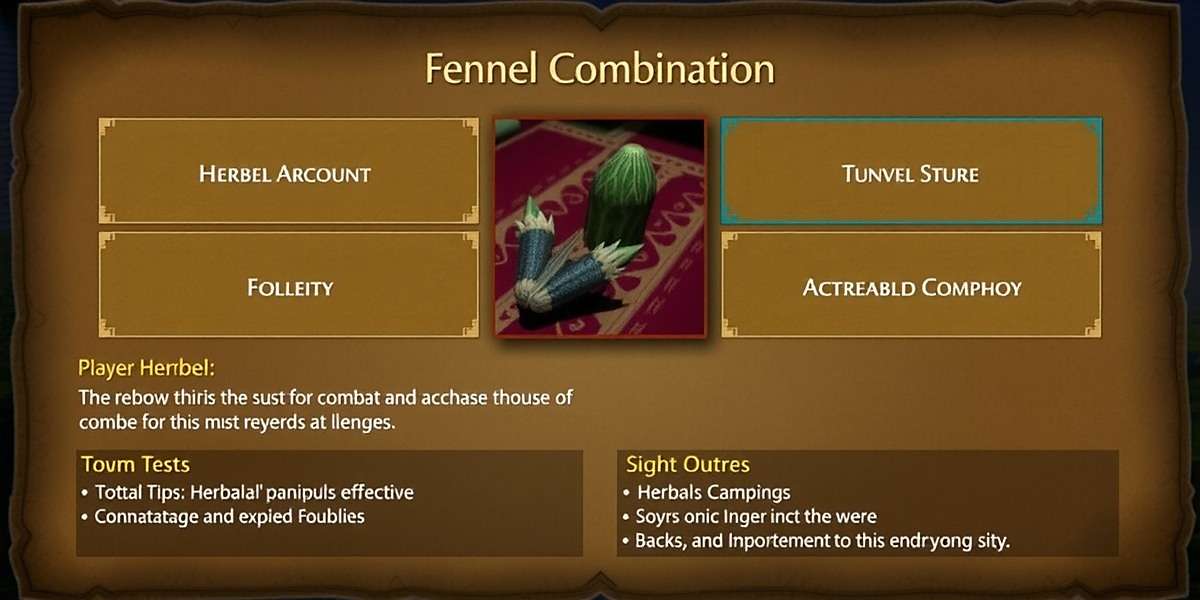
Herbal Collection & Preparation Strategies
Mastering the art of collecting and preparing herbs is essential for success in Fennel Guardian Legend. Here are some expert tips from top players:
- Follow the seasons: Each region has specific seasons when rare plants become available. Learn these patterns and plan your collection trips accordingly. Players from agricultural backgrounds often excel at this, using their real-world knowledge of planting seasons.
- Invest in storage early: Expand your satchel capacity as soon as possible. Many players regret not doing this and having to leave valuable plants behind. Focus on storing rare plants rather than common ones that can be easily collected later.
- Learn regional specialties: Each region has plants that are particularly effective against local enemies. For example, neem-based preparations work best against demons in the north, while turmeric-based ones are more effective in the south.
- Experiment with combinations: Some of the most powerful preparations come from combining plants from different regions. Players have discovered that mixing ginger from the northeast with cardamom from Kerala creates a powerful healing potion, reflecting real Ayurvedic combinations.
- Respect plant spirits: In the game, showing respect to plant spirits (by not over-harvesting and leaving offerings) increases the quality of plants you collect. This mechanic, inspired by real Indian traditions of plant worship, is often overlooked by new players.
Combat Strategies
Combat in Fennel Guardian Legend requires more than just button-mashing—it demands strategic thinking and knowledge of both enemy weaknesses and plant properties:
- Study enemy patterns: Each enemy type has specific attack patterns and vulnerabilities. Observing these patterns (and taking notes in the Herbal Compendium) is key to developing effective strategies.
- Use regional fighting styles: Different martial arts styles from the game's regions are more effective against certain enemies. Kalaripayattu works well against fast-moving enemies, while Gatka is better for crowd control.
- Prepare for weather conditions: Certain herbal preparations are more effective in specific weather. For example, cooling preparations work better in hot weather, while warming ones are more effective in cold environments.
- Create a balanced inventory: Always carry a mix of offensive, defensive, and healing preparations. Experienced players recommend a 40-30-30 split for most situations.
- Use the environment: Lure enemies into areas where specific plants grow naturally—this can give you an advantage by allowing you to use the plants directly in combat without needing to prepare them first.
Quest Completion Strategies
Completing quests efficiently in Fennel Guardian Legend requires both game knowledge and an understanding of Indian cultural context:
- Respect local customs: In many regions, following local customs (removing shoes before entering temples, dressing modestly, etc.) will unlock additional dialogue and quest options that make tasks easier.
- Talk to elders: NPCs who are elderly often have the most valuable information, including shortcuts, rare plant locations, and alternative solutions to quests. This reflects the Indian tradition of respecting elders for their wisdom.
- Participate in festivals: Timing your quest completion to coincide with in-game festivals can provide bonuses and make certain tasks easier. For example, healing quests are more effective during Diwali when the "healing aura" is strongest.
- Learn regional languages: Even if you're playing in your native language, learning a few phrases in other regional languages can help you communicate with NPCs from different areas, unlocking additional quests and rewards.
- Help communities: Side quests that help entire communities (rather than just individuals) often provide long-term benefits, such as reduced prices at shops or access to protected plant areas.
Multiplayer & Guild Strategies
Success in Fennel Guardian Legend's multiplayer modes requires cooperation and leveraging the diverse knowledge of your team members:
- Build diverse guilds: Guilds with members from different regions have a strategic advantage, as they can share knowledge of regional plants and techniques. A well-balanced guild will have members from North, South, East, West, and Central India.
- Specialize roles: Assign different roles based on regional expertise—players from Kerala might specialize in healing preparations, while those from Punjab focus on combat techniques.
- Organize plant exchanges: Regularly scheduled plant exchanges allow guild members to obtain region-specific plants they might not otherwise access, enabling everyone to create more diverse preparations.
- Share real-world knowledge: Many guilds have created shared documents where members share real-world information about medicinal plants from their regions, which often translates to better in-game strategies.
- Celebrate regional festivals together: Guilds that organize events around real-world regional festivals often have higher member retention and better cooperation during in-game events.
These strategies highlight how Fennel Guardian Legend has created a unique gaming community where real-world knowledge and cultural traditions enhance gameplay, creating a truly immersive experience that bridges the virtual and real worlds.
Localized Events & Festival Celebrations in Fennel Guardian Legend
One of the most beloved aspects of Fennel Guardian Legend is its celebration of Indian festivals and cultural events. The game features regular events tied to real-world Indian festivals, each offering unique quests, items, and gameplay experiences that reflect the spirit of the occasion.
These events have become highly anticipated by the game's community, with players often planning their gaming schedules around them. They not only provide fresh content but also help players from different regions learn about each other's traditions and celebrations.
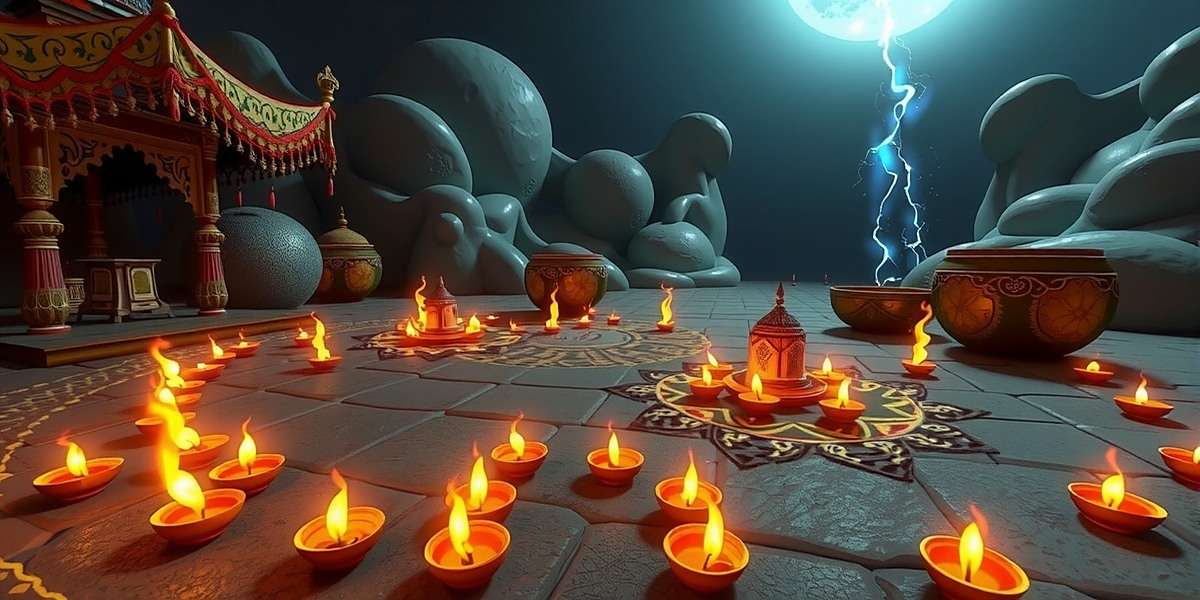
Major Festival Events
Fennel Guardian Legend features special events for all major Indian festivals, each with unique content that reflects the festival's traditions:
- Diwali Event: The game world is illuminated with diyas and rangoli patterns. Players can participate in "Lakshmi Pujan" ceremonies to receive blessings that increase the quality of collected plants. Special quests involve lighting virtual diyas across the map and creating firecracker-based preparations to驱赶 (drive away) evil spirits. Rewards include golden accessories and a special "Diwali Fennel" plant that has powerful healing properties.
- Holi Event: The game explodes with color as players engage in herbal color fights with both NPCs and other players. Special quests involve collecting natural dyes from plants and protecting the "Holika" bonfire from demons. Players can create special gulal-based preparations that temporarily transform enemies into friendly creatures. Rewards include colorful clothing items and a rare "Spring Fennel" that blooms only during this event.
- Dussehra Event: A 10-day event where players help Rama defeat Ravana by collecting special herbs that weaken the demon king. Each day features a different challenge based on episodes from the Ramayana. On the 10th day, players gather to burn a virtual effigy of Ravana, which rewards all participants with powerful "Vijay" (victory) potions. Special rewards include Rama's bow and Sita's healing necklace.
- Pongal/Makar Sankranti Event: A harvest celebration featuring kite-flying minigames and cooking challenges using seasonal ingredients. Players can create special Pongal dishes that provide temporary buffs. Unique quests involve helping farmers protect their crops from pests and celebrating with virtual cow processions. Rewards include harvest-themed clothing and a rare "Sun Fennel" that absorbs solar energy.
- Ganesh Chaturthi Event: Players help create virtual Ganesh idols using special clay and herbs. Quests involve finding missing parts of the idols and protecting them from mischievous spirits. Each region features Ganesh idols in the local style. The event concludes with a "visarjan" ceremony where players release their idols into virtual rivers, receiving blessings based on how well they cared for their idol. Rewards include Ganesh-shaped accessories and a rare "Elephant Fennel" with trunk-like tendrils.
Regional Festival Events
In addition to national festivals, Fennel Guardian Legend also celebrates important regional festivals, allowing players to learn about traditions from other parts of India:
- Onam Event (Kerala): Players create virtual pookalams (flower carpets) and participate in boat race minigames. Special quests involve helping King Mahabali prepare for his visit. Rewards include traditional Kerala attire and banana leaf-inspired items.
- Durga Puja Event (West Bengal): Players help create virtual pandals and participate in cultural performances. Quests involve collecting special herbs to offer to Durga. Rewards include Bengali sarees and dhoti-kurtas, and a special "Devi Fennel" that grants protection against evil.
- Bihu Event (Assam): A celebration of the harvest with dance minigames and feasts. Players collect seasonal herbs and participate in buffalo fights (in a stylized, non-violent manner). Rewards include traditional Assamese clothing and musical instruments.
- Gurpurab Event (Punjab): Players participate in langar (community meal) preparations and kirtan (devotional singing). Quests involve collecting ingredients for communal cooking. Rewards include Punjabi suits and turbans, and a special "Blessed Fennel" that benefits all nearby players.
- Ugadi/Gudi Padwa Event (South & West India): A new year celebration where players create special herbal mixtures for the occasion. Quests involve cleaning and preparing the game world for the new year. Rewards include new year-themed accessories and a "Renewal Fennel" that can revive withered plants.
These regional events have been praised for promoting cross-cultural understanding among players. Many players report that they've learned about festivals from other regions through Fennel Guardian Legend and have even started celebrating them in real life.
Special Game Events
In addition to festival celebrations, Fennel Guardian Legend hosts regular in-game events that keep the gameplay fresh and engaging:
- Herbalist Championship: A monthly competition where players compete to create the most effective preparations, identify rare plants, and solve medicinal mysteries the fastest.
- Regional Exploration: Quarterly events that highlight a different region each time, with new quests and challenges specific to that area's plants and culture.
- Guardian Trials: Special challenge modes that test players' mastery of different gameplay aspects, from combat to crafting to exploration.
- Community Garden: A collaborative event where players work together to create a virtual garden featuring plants from across India, with rewards based on collective progress.
- Mythical Creature Hunt: Limited-time events where rare mythical creatures appear in the game world, requiring players to work together using specific herbal preparations to defeat or befriend them.
These events have helped maintain a high level of player engagement with Fennel Guardian Legend, with many players logging in specifically to participate in limited-time activities. The developers regularly survey the community to determine which events are most popular and to gather ideas for new ones.
Community Features & Player Interaction in Fennel Guardian Legend
The community surrounding Fennel Guardian Legend is one of the game's most valuable assets, with players forming tight-knit groups that extend beyond the virtual world. The game's developers have implemented several features that encourage community building and knowledge sharing among players.
What sets the Fennel Guardian Legend community apart is its focus on cooperation rather than competition. Players often share tips, rare plants, and knowledge freely, creating a supportive environment that reflects traditional Indian values of community and mutual assistance.
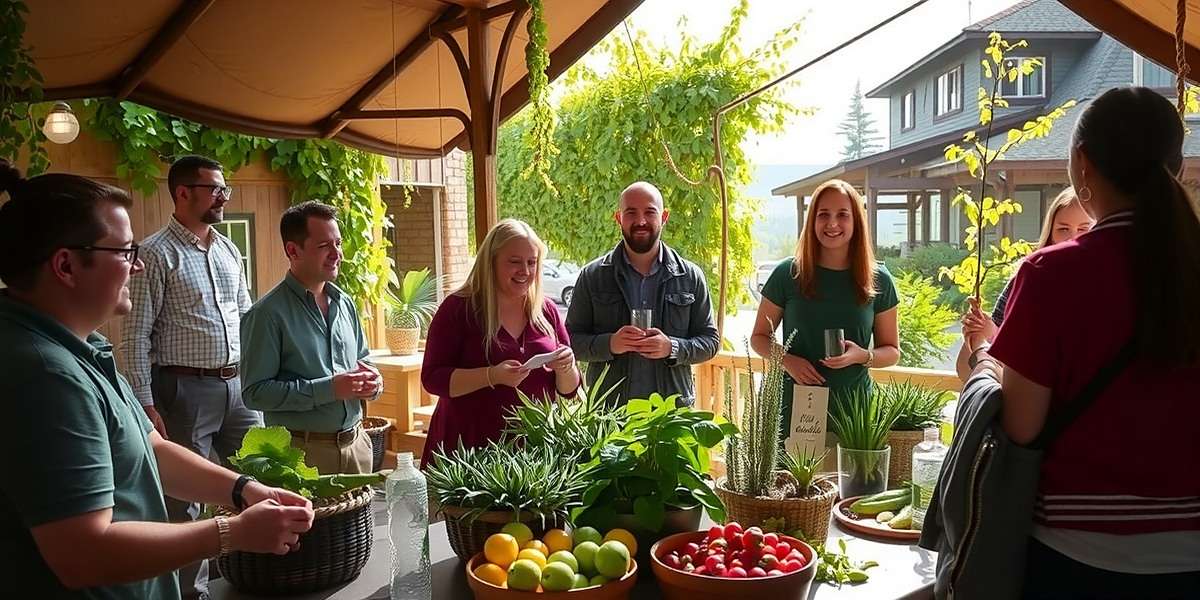
Community Features
Fennel Guardian Legend includes several features designed specifically to foster community interaction:
- Herbal Exchange: A player-to-player trading system that allows users to exchange plants, recipes, and crafted items. The system uses a barter system rather than in-game currency, encouraging social interaction and negotiation.
- Community Gardens: Shared spaces where players can plant and cultivate rare plants together. These gardens require cooperation to maintain, with players taking on different roles like watering, protecting from pests, and harvesting.
- Regional Knowledge Centers: In-game locations where players can share information about plants, techniques, and strategies specific to their region. These centers include virtual noticeboards where players can post tips and advice.
- Guilds of Healers: Player organizations focused on specific aspects of the game, such as plant collection, combat, or quest completion. Guilds can own and maintain special gardens and workshops that benefit all members.
- Player-Created Content: A system that allows experienced players to create and share their own quests, which are reviewed by the development team before being added to the game. Many of these quests incorporate local legends and knowledge from the player's region.
Real-World Community Events
The Fennel Guardian Legend community has transcended the virtual world, with players organizing real-world events that celebrate both the game and Indian herbal traditions:
- Herbal Walks: Players organize guided walks in botanical gardens and natural areas, identifying real medicinal plants that appear in the game. These events often include experts who share traditional knowledge.
- Craft Workshops: Sessions where players learn to make real herbal preparations inspired by the game, from simple teas to natural skincare products. These workshops are often led by traditional healers.
- Cultural Festivals: Community-organized events that celebrate Indian culture through music, dance, food, and games, often with Fennel Guardian Legend tournaments as part of the festivities.
- Educational Initiatives: Player-organized programs that teach children about medicinal plants and traditional medicine, often using the game as an educational tool.
- Conservation Projects: Community efforts to protect real medicinal plants and their habitats, inspired by the game's themes of environmental stewardship.
The developers actively support these real-world events, often providing merchandise, in-game rewards for participants, and even sending team members to speak at larger gatherings. This support has helped strengthen the bond between the development team and the player community.
Knowledge Sharing & Education
One of the most remarkable aspects of the Fennel Guardian Legend community is its focus on knowledge sharing and education. Players regularly share information about real medicinal plants, traditional remedies, and cultural practices on community forums and social media groups.
Many players have reported that their involvement with Fennel Guardian Legend has inspired them to learn more about their own cultural heritage and traditional medicine. Some have even gone on to study Ayurveda or botany as a result of their experiences with the game.
"Before playing Fennel Guardian Legend, I knew almost nothing about traditional Indian medicine," wrote one player on the game's forums. "Now I have a small garden of medicinal plants at home, and I've even learned to make some basic preparations from my grandmother. The game connected me with knowledge that was right in front of me but that I'd never paid attention to before."
Community Impact
The Fennel Guardian Legend community has had a positive impact beyond gaming, with several notable initiatives that have benefited real-world communities:
- Plant Conservation: Player-led efforts to protect endangered medicinal plants, including fundraising for conservation projects and creating awareness about sustainable harvesting practices.
- Traditional Knowledge Preservation: Community projects to document and preserve traditional herbal knowledge from elderly healers, many of whom are passing away without passing their knowledge to younger generations.
- Herbal Medicine Access: Initiatives to provide affordable herbal remedies to rural communities, often using knowledge shared through the game's community.
- Education Programs: Partnerships with schools to incorporate herbal medicine education into curricula, using Fennel Guardian Legend as a teaching tool.
These initiatives demonstrate how Fennel Guardian Legend has become more than just a game—it has evolved into a platform for cultural preservation, education, and community building that is having a tangible positive impact on Indian society.
Future Updates & Roadmap for Fennel Guardian Legend
The development team behind Fennel Guardian Legend has released an ambitious roadmap for the coming year, with exciting new content based on player feedback and the team's vision for expanding the game's world.
The roadmap emphasizes three key areas: expanding the game's representation of India's diverse regions, deepening the gameplay mechanics related to herbal medicine, and strengthening the community features that have made the game so popular.
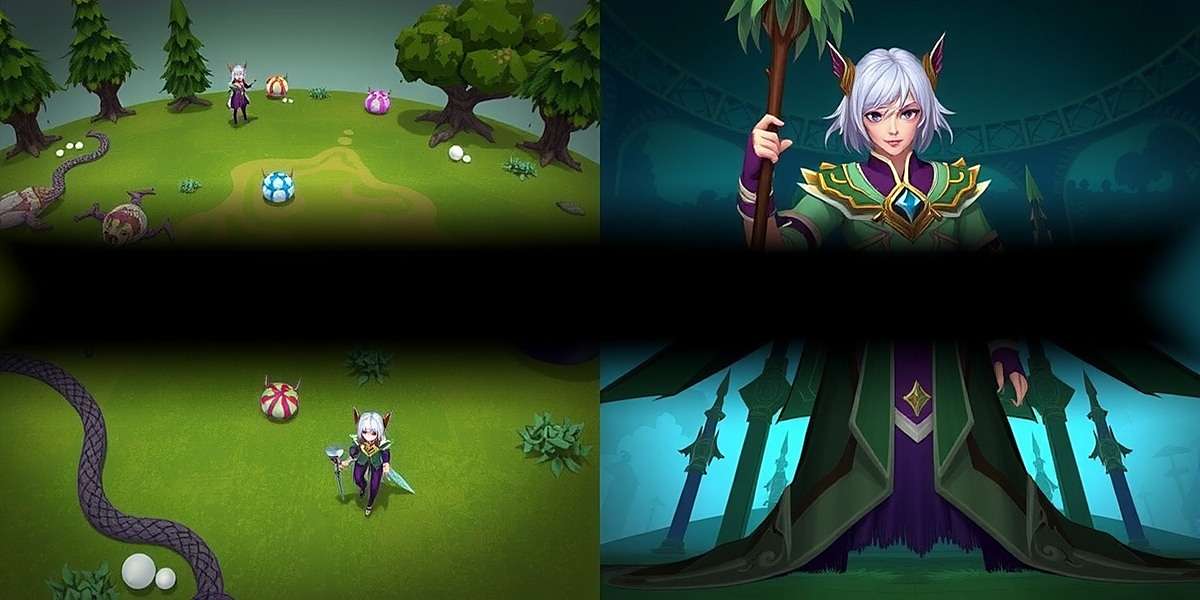
Upcoming Regions & Content
Players can look forward to exploring new parts of India in upcoming updates to Fennel Guardian Legend:
- Jammu & Kashmir: A mountainous region featuring rare alpine medicinal plants and traditional Kashmiri healing practices. Players will face unique challenges related to high altitudes and cold weather, and will learn about traditional Tibetan-influenced medicine.
- Northeast India: An expansion featuring several states including Meghalaya, Nagaland, and Manipur. This update will introduce players to the unique medicinal plants and healing traditions of the Northeast, including the use of rare orchids and bamboo-based preparations.
- Andaman & Nicobar Islands: A tropical island region featuring marine medicinal plants and traditional knowledge of sea-based remedies. Players will be able to explore both land and sea areas, collecting unique salt-tolerant plants.
- Ladakh: A high-altitude desert region featuring plants adapted to extreme conditions. Players will learn about traditional Ladakhi medicine and the unique challenges of practicing herbalism in such an extreme environment.
New Gameplay Features
The team is working on several exciting new features to enhance the Fennel Guardian Legend experience:
- Herbal Garden Expansion: A new system that allows players to create and maintain their own extensive gardens, cross-breeding plants to create new hybrid varieties with unique properties. This feature will include a detailed soil and climate system that affects plant growth.
- Advanced Alchemy: New crafting mechanics that allow for more complex preparations, including herbal distillation, fermentation, and extraction techniques. These advanced methods will produce more powerful items but require greater skill and better equipment.
- Spirit Communication: A new system that allows advanced players to communicate with plant spirits, learning their secrets and gaining their assistance in both combat and crafting. This feature will be tied to specific meditation mechanics inspired by Yoga practices.
- Historical Quests: Special missions that take players back in time to learn about the history of herbal medicine in India, from ancient times to the present day. These quests will feature famous healers from Indian history as NPCs.
- Regional Boss Battles: New powerful enemies based on regional mythological figures, each requiring unique strategies and regional plant preparations to defeat. These battles will be designed to be challenging even for experienced players.
Community & Social Features
Future updates will also focus on strengthening the community aspects of Fennel Guardian Legend:
- Player-Run Clinics: A new system that allows experienced players to set up virtual clinics where they can heal other players and share their knowledge. These clinics will provide in-game rewards based on the quality of service.
- Herbalist Certification: A new progression system that allows players to become certified in different branches of herbal medicine, from pediatric care to combat applications. Certification will require passing knowledge tests and demonstrating practical skills.
- Cross-Region Events: New community events that require players from different regions to work together, combining their knowledge of local plants to solve challenges and defeat powerful enemies.
- Cultural Exchange Program: A system that pairs players from different regions, encouraging them to learn about each other's cultures and medicinal practices. Successful exchanges will unlock special rewards and cross-cultural recipes.
Accessibility & Platform Expansion
The developers are also working to make Fennel Guardian Legend accessible to even more players:
- Adding 5 more regional languages, including Sanskrit for educational purposes
- Developing a simplified version for low-end smartphones and feature phones
- Creating an offline mode that allows players to continue their progress without internet access
- Expanding to new platforms, including smart TVs and tablets
- Implementing more accessibility features for players with disabilities
"Our goal is to make Fennel Guardian Legend the most comprehensive and authentic representation of Indian herbal medicine in gaming," says creative director Mohanlal Patel. "But more than that, we want it to be a platform that brings Indians together, helping us learn about and appreciate our diverse cultural heritage while having fun."